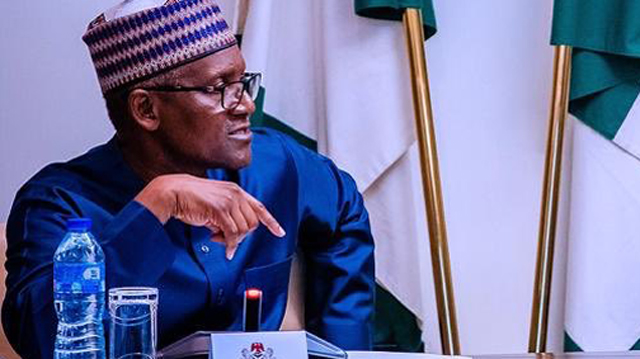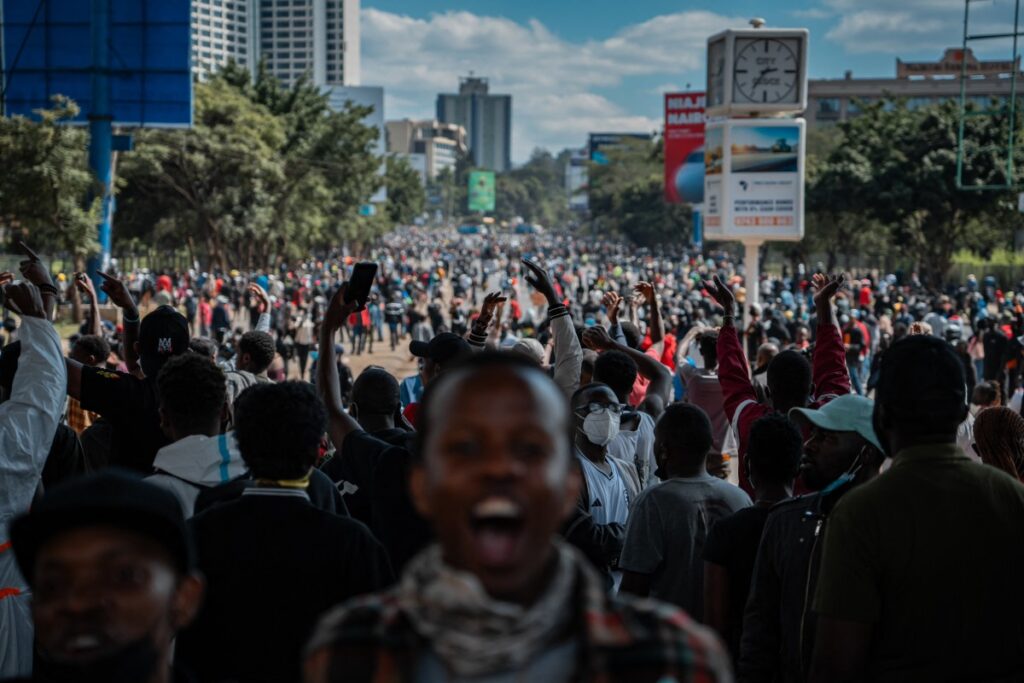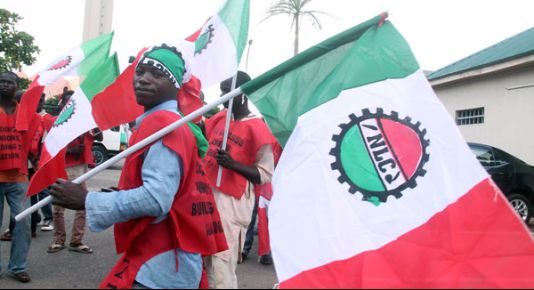 I HAVE a huge affection for former president, Goodluck Ebele Jonathan, even though I can hardly explain it.
I HAVE a huge affection for former president, Goodluck Ebele Jonathan, even though I can hardly explain it.
I met him a few times before and during his reign as Nigeria’s helmsman but remember two occasions vividly on account of their significance. Others, if I wish, I could also pass on with self-inflating relish to those needing a little lesson on my station in life, as in ‘when I was with the President …’ even though those were town hall gatherings involving a hundred other journalists. But, little matter.
One was shortly after he was catapulted to the governorship of Bayelsa State upon the impeachment of his predecessor, the late Diepreye Solomon Peter Alamieyeseigha. He was in Lagos for meetings with some party elders and a dinner with some journalists was arranged. By some design, I was asked to sit with the new governor. Genial, humble and even shy, we spoke freely and I was taken in by his humility.
I, of the fine wine consumption club, did my level best at what was on offer that day while the main man was on water. Taken aback by what I thought was some pretence, I asked him why he was not operating at my wave-length, thereby rendering our side-talk boring, he smiled and politely informed me that he already had a glass of wine or two earlier and that was it for him for the day.
We then went on to talk about his plans and how he would adjust to his new office with its challenges. I remember vividly that many answers to my questions began with ‘my boss’. My boss already wanted us to do this for the people. My boss had this plan. My boss…
He was totally loyal to Alamieyeseigha and he did not put up a show to prove it. Just the way it was. Or, who he was.
Of course, the rest is history. He went on riding the same wave of luck to the vice presidency, acting presidency and then, shortly after our second significant meeting, the ultimate, the presidency.
As Umaru Musa Yar’Adua vegetated away and the cabal around him did so much to pull wool over the eyes of Nigerians on his condition, rule by proxy while preventing Jonathan from assuming the reins, a friend of mine, a serving governor then, brought us together again. As I have narrated the story on the pages of this newspaper before, this second meeting was a more exclusive affair.
Yar’Adua was ill. Nothing was happening. All governors would gather in Abuja awaiting what to do next. The VP was just there, presiding over some meetings and assigning ministers to represent him at ceremonies.
A few of the governors went to Saudi Arabia to check on Yar’Adua, including his son-in-law, Isa Yuguda of Bauchi, whose new wife, the president’s daughter, had just been delivered of a baby. No one in that traveling group, I learnt, saw the dying president.
Upon their return, three of us, a member of that delegation to Saudi, Jonathan and my humble self, sat to discuss Nigeria in his office. A great listener, the vice president kept quiet all through, except for once when he tried to juggle his memory aloud about our previous meetings.
For about 35 minutes, we talked on the nation’s challenges and I had the privilege of telling him that he was riding a crest of goodwill similar to if not more than what was available over June 12, 1993, that in the midst of ongoing intrigues, he did not have to do much before ultimate power was thrusted upon him but he could seize the initiative on some matters and put up reassuring appearances to the nation. He was understandably cautious and rejected suggestions of anything that could make him look too ambitious. But the overall impression was that he was far from sure of himself or what he would do with the presidency if it eventually fell on him. And in our review of that meeting afterwards, I told the facilitator exactly that: a good man but looked to me like one who would tip-toe where he should stump around and whisper when the occasion called for a roar.
What Jonathan did with the office is already under review. A part, how Nigeria came under the thumb of Boko Haram, even when so much money was made available for the fight against the insurgents, and why the nation’s soldiers almost got humiliated, is the subject current national enthrallment.
An over-all verdict on his stewardship was already delivered via the ballot box. However, I have always thought, with the benefit of details, history would be fairer to him.
This nudged my submission to a friend some time ago that revisionists may cast Jonathan as a villain and his time in office as a better-forgotten era, history, the true record, may turn out a kinder and more objective chronicle. I then proceeded to liken Jonathan to former President Jimmy Carter of the United States of America who did one term from 1976 to 1980.
After running what was adjudged a poor shop as president, with the hostage crisis in Iran in which he couldn’t free Americans held captive in that country and his wimpy carriage characterised by preaching instead of governing, Carter after the White House was in odium.
A friend of his, James Laney once said: “It wasn’t just that he was unpopular, people avoided him… he was a pariah, a disgrace to the Democratic Party, because he was a loser.”
Nevertheless, it was not too long before the tide changed and the man’s true worth came to light. Details of his days in office, in hindsight, turned out a portrait not of an incompetent president but a compassionate, an incorruptible servant of the people.
Meanwhile, he threw himself into a lot of worthy courses, serving America and humanity as a whole. He is today an icon around the world, an elder statesman who personifies honesty, integrity and selfless service, who received the Nobel Peace Prize in 2002.
Carter and Jonathan, to me, have a few things in common. Small town boys. Humble background. Rising in life through a dint of hardwork. Decency of carriage. Humility, even in high office, often culminating in an image of weakness.
Post-presidency, I once expressed and still nurse the hope, there would be nothing stopping Jonathan emerging, with the passage of time, a Carter-incarnate, at least on the African continent, propelled forth by his noble conduct, his patriotism defined by his manner of leaving office.
However, as anyone would testify, Carter turned the tide to become the best former President America has ever had only because he never lost his character, his integrity in office. Therefore, when international statesmanship came on offer and available only to a man on a moral high ground, Carter stood out. Hence his glorious run.
Today, I hope what stood Carter in good stead for what he became post-presidency would stand Jonathan in good stead for what he can be, his adjudged poor performance in office notwithstanding.
The post-presidency years have not recast Carter as a great American President, they have not erased his supposedly poor performance, but they have reinforced his persona, his devotion to the values of service and, above all, his incorruptibility.
What would Jonathan’s post-presidency say about him?
I was not surprised to see Jonathan beside Carter in Atlanta, Georgia the other day, with the American ex-president pouring encomiums on the Nigerian and symbolisms took on an air of substance. I am not surprised at talks of prizes for him in honour of his final hurrah. Indeed, the Carterisation of Jonathan may be only a matter of time.
However, getting there would have to be testimony, not to the roads he built or didn’t, hospitals he constructed or didn’t, power plants he built or didn’t, elections he won or didn’t. It would be testimony to incorruptibility, to his character, his moral worth while in office.
Ibrahim Babangida, the former military head of state, the other day said Jonathan was a man who had to punch far above his weight, too inexperienced for the presidency. Even the ex-president’s ‘godfather’, Edwin Kiagbodo Clark, has weighed in with a verdict of poor performance or incompetence. Yet, I view all these as mere revisionism, which historical details of the man’s stewardship may eventually rubbish.
Those details are, however, coming out much sooner than anticipated and my romance with Jonathan is suffering a scare. Too much is being reported to have gone wrong on his watch. And no president, however unprepared or incompetent, should ever have allowed some of the things to arise let alone arrive on his desk.
As the review of his reign hits high gear, with the worms now tumbling out of many cans, I hope the former president’s sins in office would be confined to incompetence and un-preparedness. Otherwise, his journey to redemption, to Carterisation, would be a very long one.










